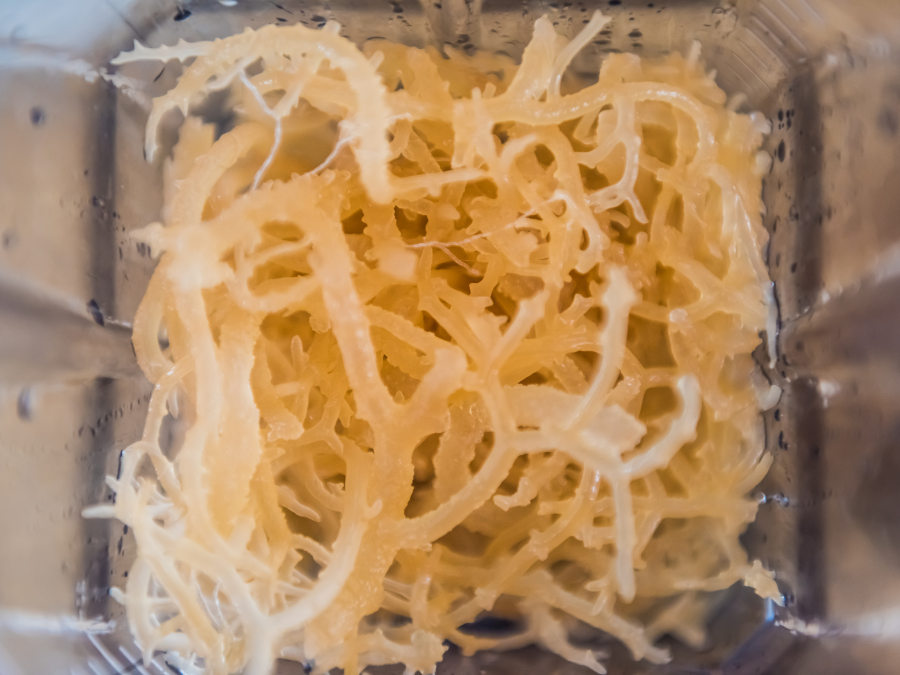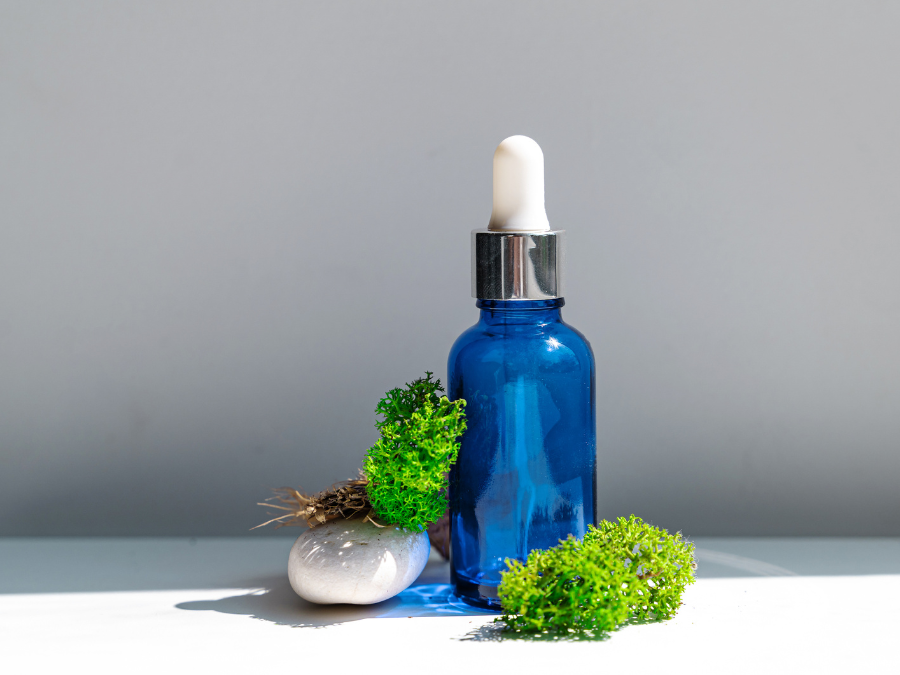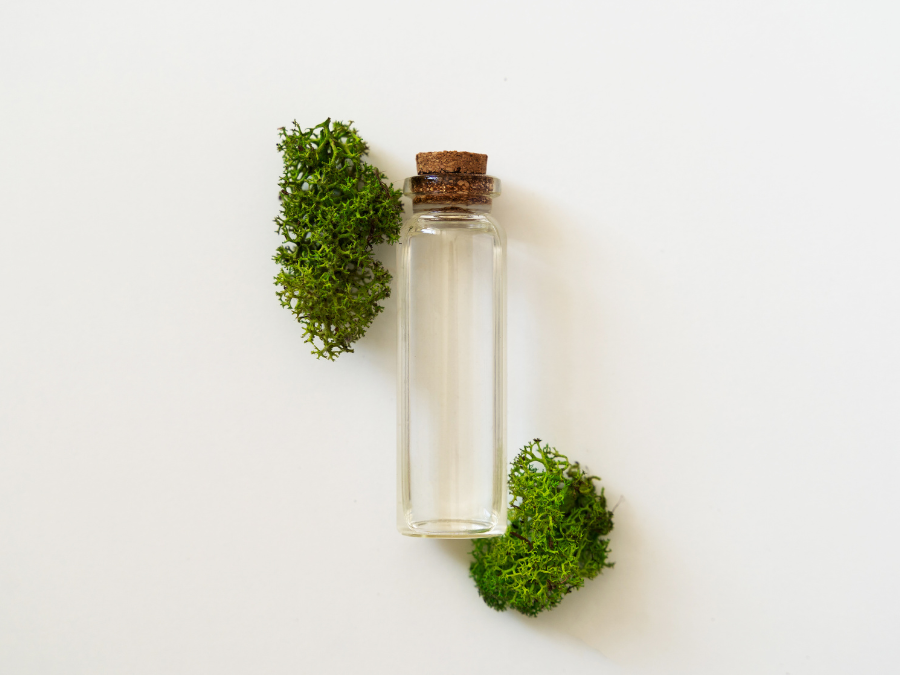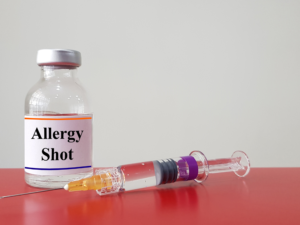Sea moss is gaining popularity for its myriad health benefits, among which its potential effects on allergies stand out.
The question then arises: “Does sea moss help with allergies?”.
Sea moss has nutrients that can strengthen the immune system. But it’s important to be careful and know the risks, like with any natural remedy.
Let’s dive right into the answer and discover facts and benefits of sea moss.
- Does Sea Moss Help with Allergies?
- What is Sea Moss?
- How Does Sea Moss Help with Allergies?
- Nutritional Profile of Sea Moss
- Considerations and Risks
- Unraveling the Health Benefits of Sea Moss
- Other Potential Sea Moss Benefits for Health
- Potential Risks and Side Effects
- Key Takeaways
- Frequently Asked Questions (FAQs)
Disclaimer: This article provides general information on sea moss, its benefits, and impacts on allergies. It is not medical advice or a replacement for professional healthcare consultation. Consult your healthcare provider before using sea moss or any new supplement, especially if you have medical conditions or take medication. The nutritional requirements of individuals vary.
Does Sea Moss Help with Allergies?
The short answer is YES, sea moss can generally help with allergies by enhancing the immune system.
However, as with any natural remedy or supplement, there are risks and considerations to keep in mind.
Before we explore the potential benefits of sea moss for allergies, let’s first understand what it is and how it works.
What is Sea Moss?

Sea moss, also known as Irish moss or red algae, is a type of seaweed that grows along the Atlantic coastlines of Europe, North America, and the Caribbean.
It has been used for centuries in traditional Irish medicine as a natural remedy for respiratory ailments and digestive issues.
How Does Sea Moss Help with Allergies?
- May Improve Allergic Symptoms on the Skin (Eczema)
- May improve immune system
- May reduce Inflammation
May Improve Allergic Symptoms on the Skin (Eczema)

Sea moss is a beneficial alternative for treating skin eczema due to its abundant polyphenols.
Polyphenols have strong anti-inflammatory characteristics; therefore, it can be helpful in improving eczema.
Eczema is a chronic inflammatory skin condition that causes itchy, red patches on the skin.
Sea moss contains anti-inflammatory properties that may help reduce inflammation and soothe irritated skin.
According to the National Eczema Association, sea moss can be a great alternative for eczema treatment.
May Improve Immune System
Sea moss, with its nutrient-dense profile, which includes vitamins such as vitamin D and various immune-boosting properties, has been suggested to aid in allergy relief.
The premise lies in the theory that a strengthened immune system can better manage the overreaction to allergens, thereby alleviating allergy symptoms.
May Reduce Inflammation

Inflammation is a natural response of the immune system to protect the body against harmful pathogens.
However, when this response becomes chronic, it can lead to various health issues, including allergies.
Studies have shown that sea moss contains compounds with anti-inflammatory effects, such as fucoidan and carrageenan.
These compounds may help reduce inflammation in the skin, providing relief for those suffering from eczema.
However, more research is needed to confirm these claims.
Nevertheless, many people have reported improvement in their allergy symptoms after incorporating sea moss into their diet.
If you’re interested in learning more about allergies, their causes, symptoms, and how to manage them, check out our comprehensive articles about allergies.
Nutritional Profile of Sea Moss

Sea moss is rich in minerals, vitamins, and trace elements that are essential for our body’s optimal function.
Some key nutrients found in sea moss include:
- Iodine: important for thyroid function and metabolism.
- Iron: vital for the production of red blood cells and oxygen transportation in the body.
- Zinc: supports immune system function and wound healing.
- Magnesium: helps with nerve and muscle function, bone health, and energy production
Antioxidants
Sea moss is an excellent source of antioxidants that can help strengthen the immune system and reduce inflammation, making it a potential natural remedy for allergies.
Iodine
Additionally, the iodine content in sea moss can also support thyroid function, which plays a role in regulating the immune response in our body.
In addition, t’s crucial to note that individual responses to sea moss can vary, and what works for one person may not work for another.
Moreover, as a naturally sourced product, sea moss may also trigger allergies in some individuals, so it’s essential to monitor your body’s reactions closely.
Considerations and Risks

While sea moss can potentially provide relief for allergies, it is essential to be aware of any potential risks or considerations.
Sea moss may contain high levels of iodine, which can cause adverse effects in individuals with thyroid conditions or those who are sensitive to iodine.
It is always recommended to consult with a healthcare professional before incorporating sea moss or any new supplement into your diet.
Additionally, sea moss may also contain heavy metals or other contaminants if not sourced and processed properly.
It is essential to purchase sea moss from reputable sources and ensure proper cleaning and preparation methods are followed.
Unraveling the Health Benefits of Sea Moss
Sea moss, also known as Irish moss or Chondrus crispus, is a type of red algae that’s been making waves in the wellness world.
Adored for its immune-boosting nutrients and gut health benefits, this sea vegetable is rich in essential minerals, amino acids, and vitamins, particularly vitamin C and vitamin D.
How is Sea Moss used?

Sea moss is a type of red seaweed that grows in the Atlantic coastlines of North America, Europe, and the Caribbean Islands.
It’s been used for centuries as a natural remedy, a food thickener, and even in beauty products. It has been widely used in the pharmaceutical industry.
Sea moss is typically consumed in a gel form, but you can also find it in a dried form or as capsules.
Types of Sea Moss
There are a variety of sea mosses out there, but the most commonly consumed ones are the golden sea moss and the purple sea moss.
Both are rich in nutrients, but they each have their unique taste and texture.
Sea Moss Nutrition
Sea moss contains 92 out of 102 essential minerals that the human body needs. It’s especially high in iodine, which plays a crucial role in thyroid health.
It’s also packed with potassium chloride, a nutrient that’s good for the heart.
How is Sea Moss Consumed?

Most people consume sea moss in its gel form.
You can make this gel at home by soaking dried sea moss in water, and then blending it until it attains a smooth consistency.
Some people also incorporate sea moss into their smoothies, soups, or desserts.
Other Potential Sea Moss Benefits for Health
The potential benefits of sea moss range from boosting the immune system to promoting weight loss and improving skin health.
Here’s a closer look at some of these benefits:
May Promote Weight Loss

Sea moss is low in calories but high in dietary fiber, making it an excellent food for weight loss.
The fiber in sea moss can make you feel full for longer, thereby reducing your overall calorie intake.
May Help with Digestive Health
The high fiber content in sea moss can also aid in digestion and promote a healthy gut.
It may also have prebiotic properties, meaning it can feed the good bacteria in your gut and improve overall digestive health.
May Improve Skin Health

Sea moss is packed with nutrients that are beneficial for the skin.
For instance, it contains fatty acids that can help to hydrate the skin and protect it from environmental damage.
Potential Antitumoral Effect
Some research has shown that sea moss may have an antitumoral effect, meaning it could potentially help to inhibit the growth of tumors.
However, more studies are needed to confirm this potential benefit.
Potential Risks and Side Effects

While sea moss is generally considered safe for most people, it’s important to know about any potential risks.
Iodine Poisoning
Because sea moss is high in iodine, consuming too much of it can lead to iodine poisoning.
Symptoms might include a burning sensation in the mouth, a weak pulse, and nausea.
Allergic Reactions
As with any food, some people might be allergic to sea moss.
If you experience symptoms like skin rashes or difficulty breathing after consuming sea moss, seek immediate medical attention.
Heavy Metals
Sea moss can absorb heavy metals from its environment, which can then end up in your body.
Therefore, it’s crucial to purchase sea moss from reputable sources.
There may be additional health risks that we haven’t addressed yet.
It’s always important to do your own research and consult with a healthcare professional before adding any new food or supplement to your diet.
Key Takeaways

Sea moss is a nutrient-dense sea vegetable that offers a host of benefits.
From boosting the immune system to promoting weight loss and improving skin health, it’s no wonder that sea moss is gaining popularity.
However, like any natural remedy, it’s important to use sea moss responsibly and in moderation.
If you’re considering adding sea moss to your diet, it’s always a good idea to consult with a healthcare provider first.
Frequently Asked Questions (FAQs)

How to incorporate sea moss into my diet?
Sea moss can be included in your diet in several ways. The most common is to turn it into a gel and add it to smoothies, teas or soups. It’s also available in powdered form, which can be added to a variety of dishes.
Can I consume sea moss every day?
Yes, you can consume sea moss every day, but it should be in moderation due to its high iodine content. Overconsumption can lead to iodine poisoning.
What is the best time to consume sea moss?
There is no specific time to consume sea moss. It can be consumed at any time that fits your schedule.
Can sea moss cause allergic reactions?
Although uncommon, sea moss can cause allergic reactions in some people, leading to symptoms such as skin rashes or difficulty breathing. If you experience these symptoms, discontinue use and seek medical attention.
Where can I buy sea moss?
You can buy sea moss from health food stores or online. Ensure to purchase from reputable sources to avoid the risk of contamination with heavy metals.
Resources
Antitumor Potential: https://pubmed.ncbi.nlm.nih.gov/32747241/
Khotimchenko M, Tiasto V, Kalitnik A, Begun M, Khotimchenko R, Leonteva E, Bryukhovetskiy I, Khotimchenko Y. Antitumor potential of carrageenans from marine red algae. Carbohydr Polym. 2020 Oct 15;246:116568. doi: 10.1016/j.carbpol.2020.116568. Epub 2020 Jun 12. PMID: 32747241.
Seaweed Benefits: https://www.ncbi.nlm.nih.gov/pmc/articles/PMC8232781/
Palstra AP, Kals J, Blanco Garcia A, Dirks RP, Poelman M. Immunomodulatory Effects of Dietary Seaweeds in LPS Challenged Atlantic Salmon Salmo salar as Determined by Deep RNA Sequencing of the Head Kidney Transcriptome. Front Physiol. 2018 Jun 1;9:625. doi: 10.3389/fphys.2018.00625. PMID: 29910738; PMCID: PMC5992350.
Polyphenols: https://www.hindawi.com/journals/omcl/2016/7432797/
Hussain T, Tan B, Yin Y, Blachier F, Tossou MC, Rahu N. Oxidative Stress and Inflammation: What Polyphenols Can Do for Us? Oxid Med Cell Longev. 2016;2016:7432797. doi: 10.1155/2016/7432797. Epub 2016 Sep 22. PMID: 27738491; PMCID: PMC5055983.
National Eczema Association: https://nationaleczema.org/blog/sea-moss-for-eczema/










